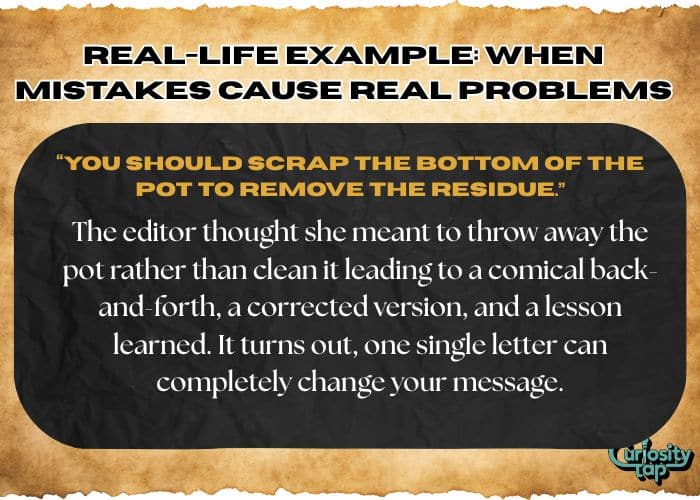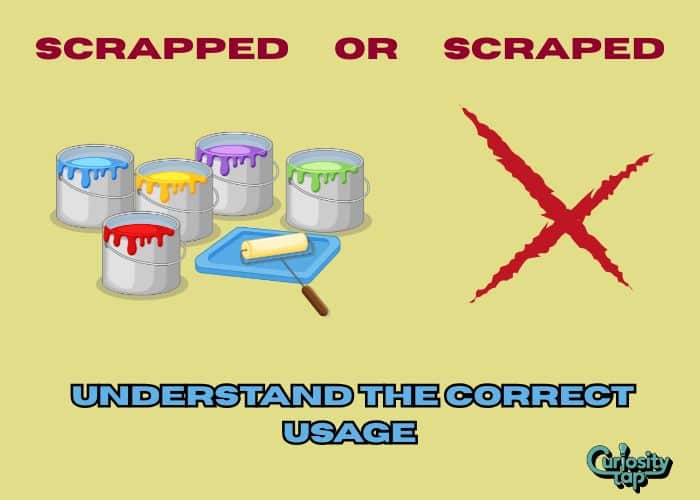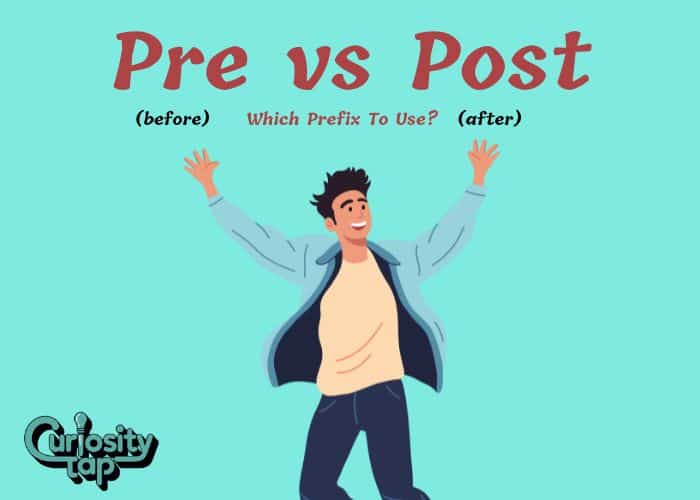English can be tricky especially when words sound similar but have entirely different meanings. One such pair that trips up even native speakers is scrapped vs scraped.
Whether you’re writing a blog, technical report, or just a social media post, using the wrong word can change the entire meaning of your sentence.
In this post, we’ll break down the difference between “scrapped” and “scraped”, show you how to use them correctly, and provide clear examples that stick.
If you’ve ever paused mid-sentence asking, “Is it scrapped or scraped?” this guide is for you.
Understanding the Difference: Scrapped vs Scraped
Both words are past tense verbs but with very different meanings. Let’s dissect each:
What Does “Scrapped” Mean?
Scrapped is the past tense of scrap, which typically means:
- To discard something as worthless
- To abandon a plan or project
- To engage in a minor physical fight (informal)
Examples:
- “The old car was scrapped for parts.”
- “They scrapped the new app after poor testing results.”
- “The boys scrapped after a heated argument.” (slang)
What Does “Scraped” Mean?
Scraped is the past tense of scrape, which means:
- To remove something by rubbing or pulling a tool across a surface
- To slightly injure or damage a surface
- To narrowly manage or achieve something
Examples:
- “He scraped mud off his shoes.”
- “She scraped her knee after falling.”
- “He just scraped through the exam.”
✅ Quick Tip: Think “scrap = toss away,” and “scrape = rub or scratch.”
Visual Comparison: Scrapped vs Scraped
| Aspect | Scrapped | Scraped |
|---|---|---|
| Root Verb | Scrap | Scrape |
| Primary Meaning | To discard or abandon | To remove or graze a surface |
| Common Use Cases | Projects, items, fights | Cleaning, injuries, achieving barely |
| Example Sentence | “They scrapped the old blueprint.” | “She scraped paint off the window.” |
Why the Confusion Happens
The confusion arises because both words are phonetically similar and often occur in tech, business, or physical scenarios.
For instance:
❌ “He scrapped the bowl to remove leftover rice.”
✅ Correction: “He scraped the bowl to remove leftover rice.”
This tiny mistake changes the sentence from “He threw the bowl away” to “He cleaned the bowl.”

Real-Life Example: When Mistakes Cause Real Problems
A freelance content writer once submitted an article for a food blog. In a sentence describing how to clean burnt rice from a pan, she wrote:
“You should scrap the bottom of the pot to remove the residue.”
The editor thought she meant to throw away the pot rather than clean it leading to a comical back-and-forth, a corrected version, and a lesson learned. It turns out, one single letter can completely change your message.
Checklist: How to Choose the Right Word
Use this quick checklist to avoid mistakes:
✅ Use scrapped when:
- You’re abandoning a plan
- You’re discarding an object
- You’re talking about a fight (slang)
✅ Use scraped when:
- You’re cleaning or removing something from a surface
- You’re talking about a minor injury
- You’re barely managing something
FAQs: People Also Ask
Is it “scrapped the project” or “scraped the project”?
✅ Correct: Scrapped the project. “Scrapped” means it was abandoned or canceled.
Can you say “he scraped the idea”?
❌ Incorrect. You should say “he scrapped the idea” if it was discarded.
What’s the difference between “scraping data” and “scrapping data”?
Scraping data refers to extracting data (especially in tech).
Scrapping data would mean discarding or deleting it.
Is “scrapped” slang for fighting?
Yes, in informal speech, “to scrap” can mean to fight (usually minor or childish).
Is “scraped by” grammatically correct?
Yes. “Scraped by” is an idiom meaning to barely succeed or survive something.
Pros and Cons of Each Word Usage
| Word | Pros | Cons |
|---|---|---|
| Scrapped | Clear meaning when abandoning/canceling projects | Can confuse if misused in physical contexts |
| Scraped | Useful in physical, tech, and idiomatic usage | Can be mistaken for “scrapped” if not carefully written |
Conclusion: Scrapped vs Scraped—Now You Know
When it comes to “scrapped” vs “scraped,” understanding the core meaning is crucial. One implies discarding, the other removing or slightly damaging.
They may sound alike, but using the wrong one could muddle your message, confuse your readers, or worse make you sound unprofessional.
Next time you’re writing, pause for a second and ask yourself: Am I discarding something or cleaning/removing something? That small moment of clarity can prevent a big mistake.
Call to Action
Want to master more confusing English words like these?
👉 [Explore our Commonly Confused Words Series]
📬 Or subscribe to our [Weekly English Writing Tips Newsletter] and never misuse a word again!
Sources
Sources:
- Merriam-Webster. (2024). Scrap definition
- Oxford Learner’s Dictionaries. (2024). Scrape meaning
- Grammarly Blog. (2023). Confusing English Words
Read more knowledgeable blogs on Curiosity Tap
Is this article helpful?

Jackson Pearson is a passionate educator and language enthusiast behind the blog Jackson Pearson. With years of experience in teaching and writing, he specializes in simplifying complex grammar rules, breaking down tricky vocabulary, and crafting learning guides that are both engaging and practical. His mission is to help readers boost their English skills whether they’re beginners or brushing up for fluency. Through every article, Jackson brings clarity, structure, and a spark of curiosity to the world of English learning.



